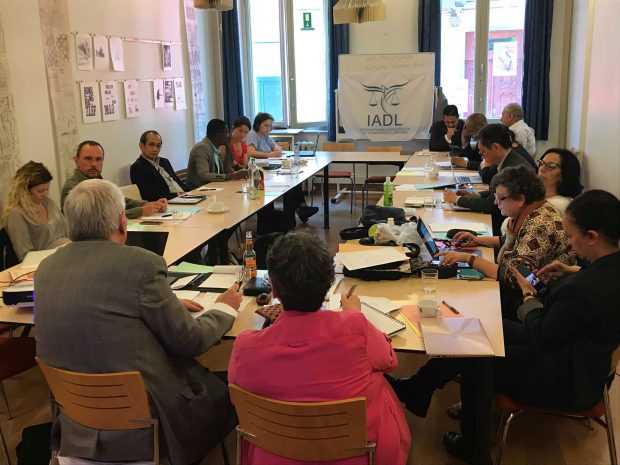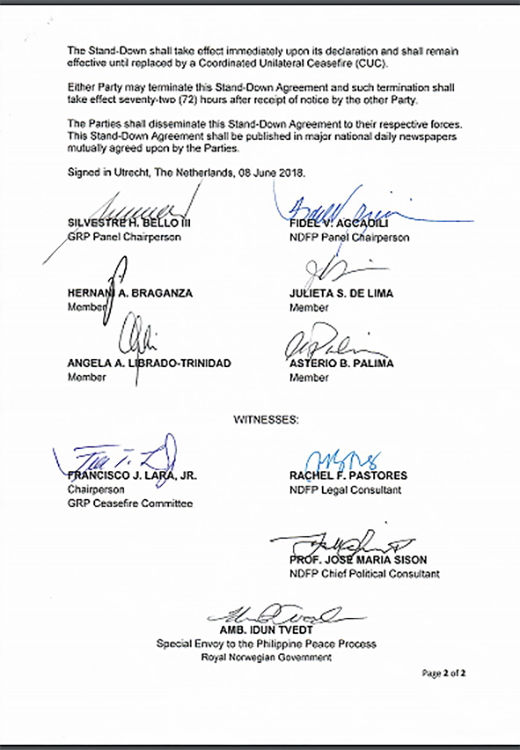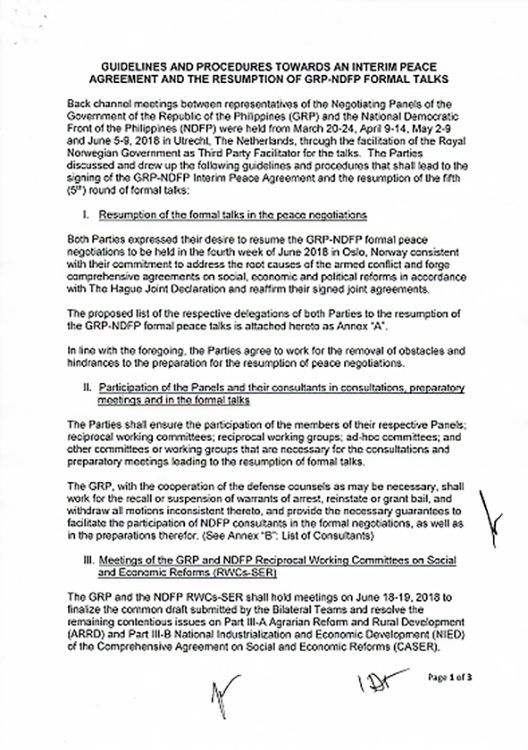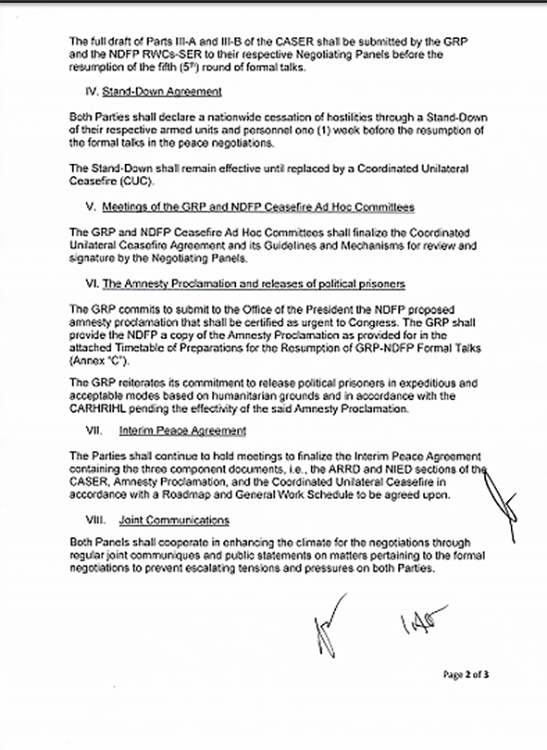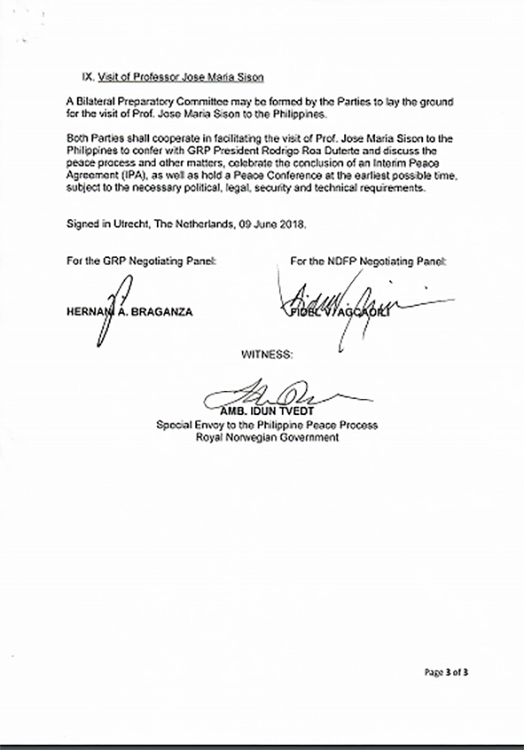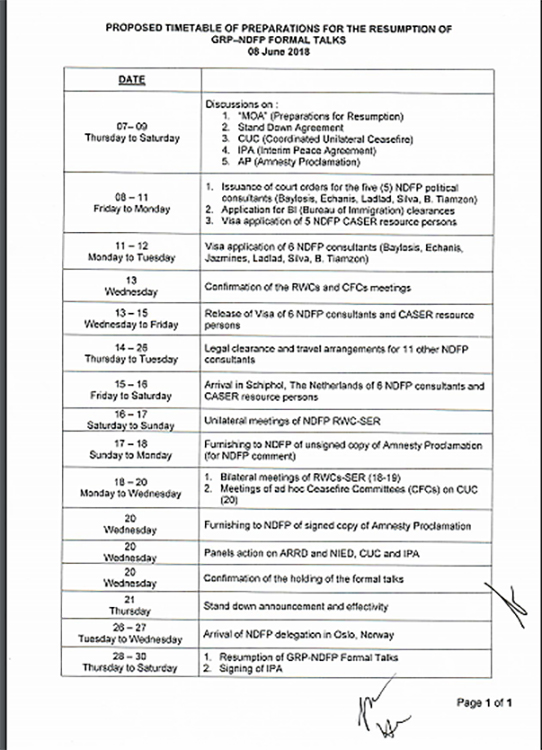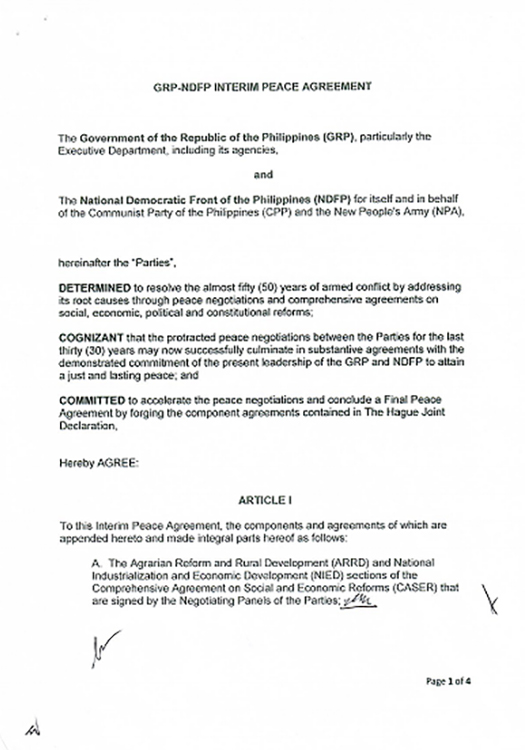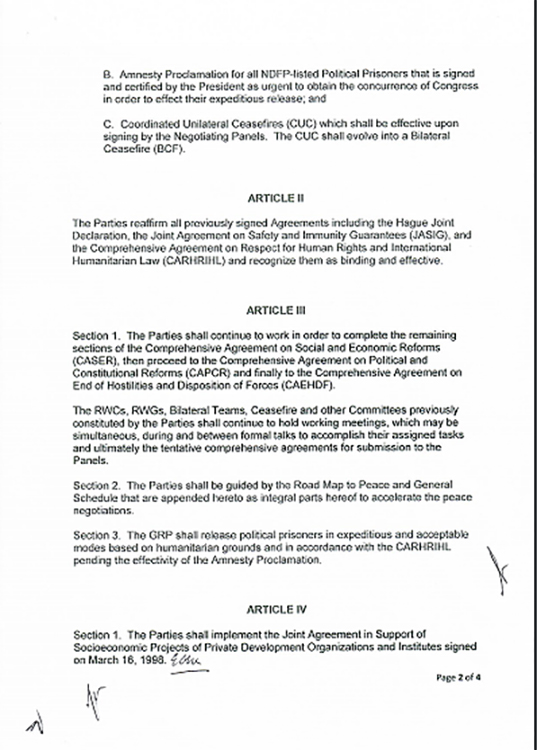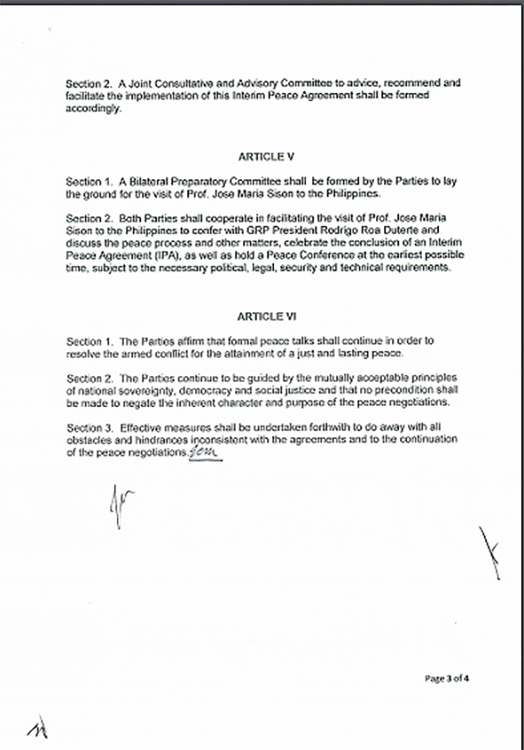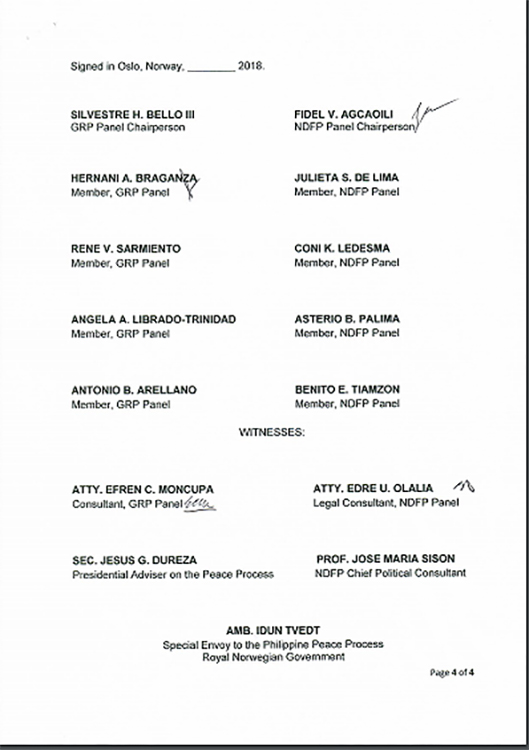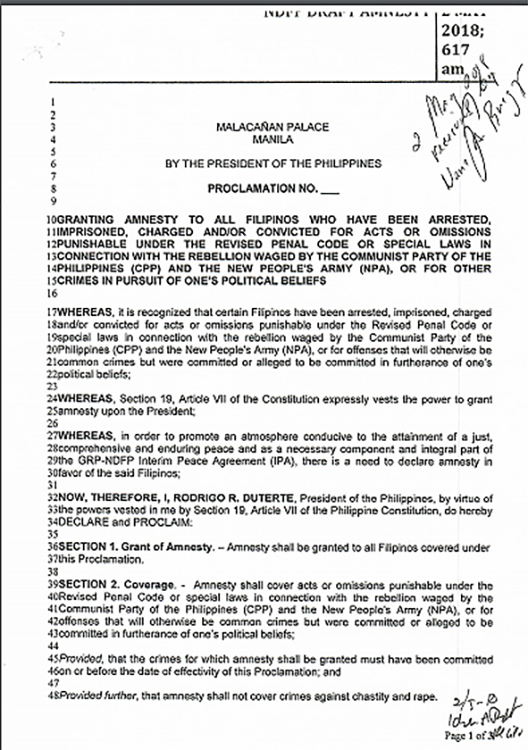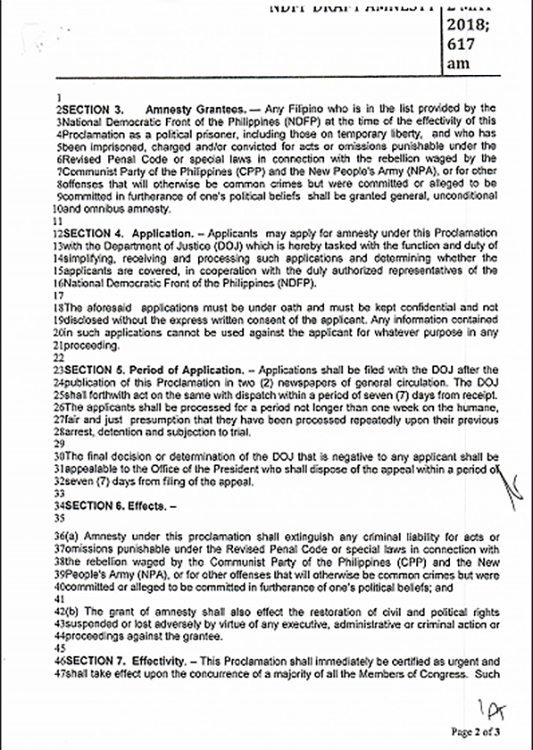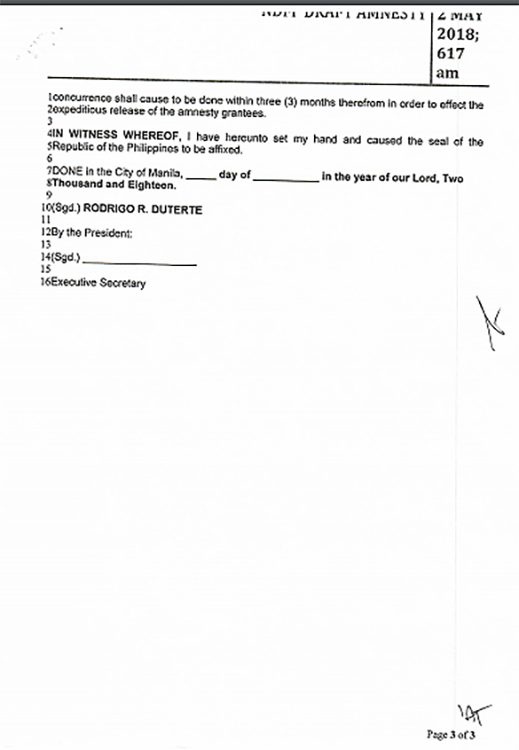NDFP could no longer negotiate with Duterte regime—Sison
National Democratic Front of the Philippines (NDFP) chief political consultant Jose Maria Sison said they could no longer negotiate with a government headed by President Rodrigo Duterte.
In his strongest statement condemning Duterte’s repeated cancellation of formal talks yet, Sison said the Filipino people, especially the oppressed and exploited, cannot expect any benefit from negotiating with Duterte’s government, adding the president has broken so many promises related to the peace process.
“It is relatively easier and more productive for the NDFP to participate in the Oust-Duterte movement and to prepare for peace negotiations with the prospective administration that replaces the Duterte regime,” Sison said Thursday (June 28).
Sison said the Duterte regime is on record as having terminated the peace talks so many times that it is indubitably responsible for the termination of peace negotiations.
“It is therefore just for the revolutionary forces and the people to wage people´s war for national liberation and democracy,” Sison said.
Sison added that it would be well and good if Duterte withdraws finally from the peace negotiations with the NDFP.
But, in so doing, Duterte would deprive himself of the opportunity of creating false illusions that he is for peace, Sison said.
“He stands isolated and ripe for ouster by the broad united front of patriotic and democratic forces,” Sison said.
Duterte’s many lies
In a two part statement, Sison mentioned several promises broken by Duterte, including an unsolicited declaration on May 16, 2016 to amnesty and release all political prisoners.
Duterte only released 19 NDFP peace consultants in August 2016 to allow them to participate in the talks while about 520 NDFP-listed others remain in various detention facilities nationwide.
Duterte has also terminated the peace negotiations with the NDFP three times since May 2017, even fouling up every attempt to resume formal talks through back channel efforts, Sison said.
After terminating the peace negotiations for the third time in November and December 2017, Duterte issued Proclamation 360 to terminate the peace negotiations and Proclamation 374 to designate the CPP and NPA as terrorist organizations.
The Department of Justice subsequently filed a case before the Manila regional trial court (RTC) to seek the proscription of the Communist Party of the Philippines (CPP), the New People’s Army (NPA) and 600 individuals as terrorists.
“These are definitely obstacles to the resumption of peace negotiations with Duterte regime,” Sison said.
“Warm and cordial” start
NDFP’s negotiations with the Duterte government started well with the first two formal rounds of talks in Oslo, Norway described as “warm and cordial.”
Things turned sour, however, when a Philippine Army unit attacked an NPA camp in Arakan, North Cotabato in January 2017, killing an NPA fighter.
The attack came while the third round of formal talks just approved free land distribution as the centerpiece of a prospective agrarian reform and rural development agreement.
The five-month ceasefire in effect at the time, the longest between the NPA and the Armed Forces of the Philippines, was subsequently cancelled by both parties.
The fourth round of formal talks in Noordwijk, The Netherlands in April 2017 was very nearly cancelled due to the insistence of the Government of the Republic of the Philippines (GRP) negotiating panel to negotiate a bilateral ceasefire agreement before further negotiations on social and economic reforms can proceed.
GRP negotiators explained that a bilateral ceasefire agreement are goodwill measures that would provide a conducive atmosphere for the continuation of formal talks.
No fifth round of formal talks has yet pushed through despite the arrival of GRP negotiators in Noordwijk in May and November 2017.
“The aforesaid actions of Duterte would have been enough bases for the NDFP to conclude that he is not at all interested in peace negotiations,” Sison said.
The CPP founder said the NDFP persevered and worked out a number of agreements with GRP representatives in back channel talks from March to June 2018, due in great part to the demands of peace advocates to remain on the negotiating table.
“The most important of these would have constituted the Interim Peace Agreement at the resumption of formal talks in Oslo from June 28 to 30,” Sison said.
The real reasons
Sison said the AFP and PNP’s wish to carry out to the end of 2018 their campaign plan to supposedly to finish off the NPA as well as to change the venue of peace talks to Manila are the real reasons why Duterte has canceled the resumption of peace talks in Oslo.
The change of venue is so that Duterte and the military can put the NDFP under their control, surveillance duress and manipulation, Sison said.
He said Ðuterte pretends to review in three months the entire process and all agreements in the GRP-NDFP peace negotiations since 1992.
“By all indications, he will try to change the entire peace process and waste previous agreements. At any rate, he will try to impose on the NDFP changes that the NDFP will certainly reject,” he explained. # (Raymund B. Villanueva)

